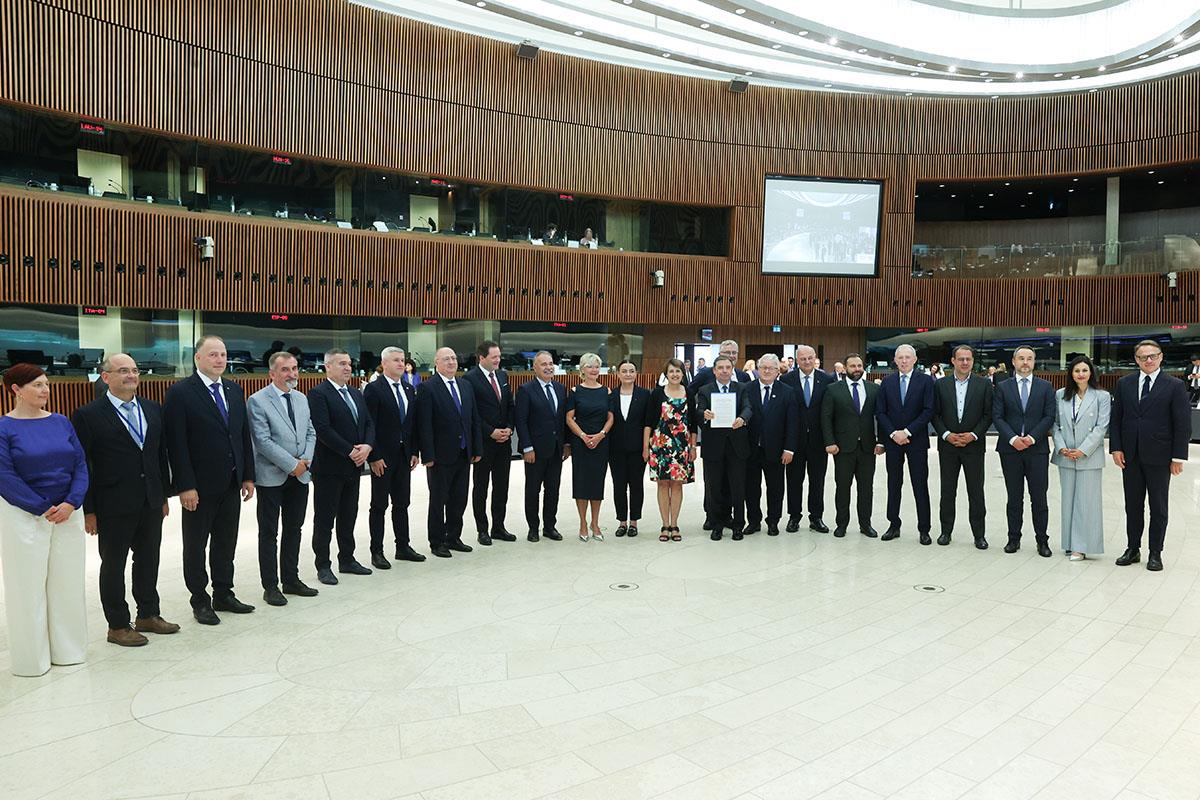 The Minister for Agriculture, Fisheries and Food, Luis Planas, with his counterparts, in Luxembourg, during the EU Council of Agriculture and Fisheries Ministers held in Luxembourg
The Minister for Agriculture, Fisheries and Food, Luis Planas, with his counterparts, in Luxembourg, during the EU Council of Agriculture and Fisheries Ministers held in Luxembourg
The Minister for Agriculture, Fisheries and Food, Luis Planas, has reiterated the need for the European Union's new financial framework to allocate a specific and sufficient economic envelope for the Common Agricultural Policy (CAP), as this is key to guaranteeing food security in Europe.
Luis Planas, who took part in the Council of Agriculture and Fisheries Ministers in Luxembourg, stressed that this is a demand shared by the majority of Member States. Luis Planas and 19 other agriculture ministers sent a letter to the European Commission in which they demanded a CAP with a sufficient budget and its own legal and institutional personality, separate from other EU policies, so that it can respond to the new challenges related to food security, climate change and the sustainability of agricultural activity. The 20 ministers took the opportunity of the Council to stage this joint support for an independent, autonomous and strategic CAP in the next Multiannual Financial Framework.
As well as being a guarantee for food security, the CAP makes it easier for European agri-food products to be competitive on international markets. Ministers advocate that the CAP should maintain its current two pillars, direct income support for farmers and rural development measures.
The minister also thanked the autonomous communities for their unanimous support for this demand, which strengthens the Spanish position, and also considered the mobilisations announced by cooperatives and agricultural organisations in Spain and Europe to support this common position to be important.
Simplification of the CAP
The Luxembourg Council of Ministers is holding a double session with 14 items on the agricultural and fisheries agenda.
Among the agricultural issues, Minister Planas gave a positive assessment of the simplification package for the Common Agricultural Policy (CAP) presented by the European Commission in May, because it includes some of the key proposals promoted by Spain. These include the elimination of the annual yield settlement, the relaxation of eco-regimes, the extension of the simplified scheme for small farmers, the reduction of the technical requirements of the area monitoring system and increased financial support for fruit and vegetable producer organisations.
Planas stressed that the fundamental point of this debate, which was dealt with in this Council as a "miscellaneous" item, is that it is unacceptable that an amendment to the current CAP, which is called "simplification", should be made in a General Affairs Council. There are currently 10 thematic councils, each with its own importance. Formally, it is essential, now and for the future debate on the CAP, that this type of document is dealt with in the Agriculture Council. There is a risk that agricultural policy itself will be weakened if it is not brought back on track.
Relations with the US and Ukraine
On trade issues, Luis Planas once again expressed his support for the European Commission's strategy of reaching an agreement with the United States on tariffs to avoid an escalation of the trade war.
With regard to the negotiation of the new association agreement with Ukraine, Luis Planas pointed out that market access, compliance with standards and the establishment of safeguard mechanisms must be guaranteed. He welcomed the fact that, pending negotiations, pro-rata quotas have been established until the end of the year and measures to protect European agricultural markets, including sensitive products such as eggs, poultry, sugar, honey and cereals.
On the principles that should govern the European Union's trade relations with third countries, Spain advocates that any liberalisation process should be preceded by a rigorous impact assessment, that there should be monitoring systems to correct possible deviations, and that safeguard and mirror clauses should be contemplated to guarantee reciprocity in production standards and trade concessions, among others.
The minister gave the example of the rice sector and pointed out that the Commission should take measures this season to avoid massive imports, which could lead to a fall in prices in a year in which Spanish production and that of other member states is expected to recover after two years of drought.
European legislation in negotiation
The Council gave a negotiating mandate on the wine support package, which will require the amendment of three European regulations. These measures, supported by Spain, aim to establish a reduction in oversupply, improve resilience to climate change, simplify labelling and extend planting flexibility. In addition, the promotion rules will be improved. The new measures help the sector to adapt to changing consumption patterns, to manage production potential and to take advantage of new market opportunities.
The presidency also presented the state of play on the texts of regulations amending the Common Market Organisation (CMO) and on unfair cross-border trade practices. The trilogues (between the European Parliament, the Commission and the Council of Ministers) are expected to start at the beginning of the Danish presidency on 1 July 2025, after a six-month period of intensive work.
The minister recalled that Spain is a pioneer in terms of defending the interests of farmers in this area, with two fundamental elements, the obligatory nature of written contracts and the prohibition of selling at a loss.
The Polish presidency is expected to report on the state of play of the trilogue negotiation of the future regulation on new genomic techniques. For his part, Luis Planas reiterated the urgency of having this regulation because of its great importance for the competitiveness and sustainability of European production. Genomic techniques will enable farmers to meet the challenges of climate change, biodiversity conservation and the demand for food from a growing population, the minister stressed.
Non official translation




